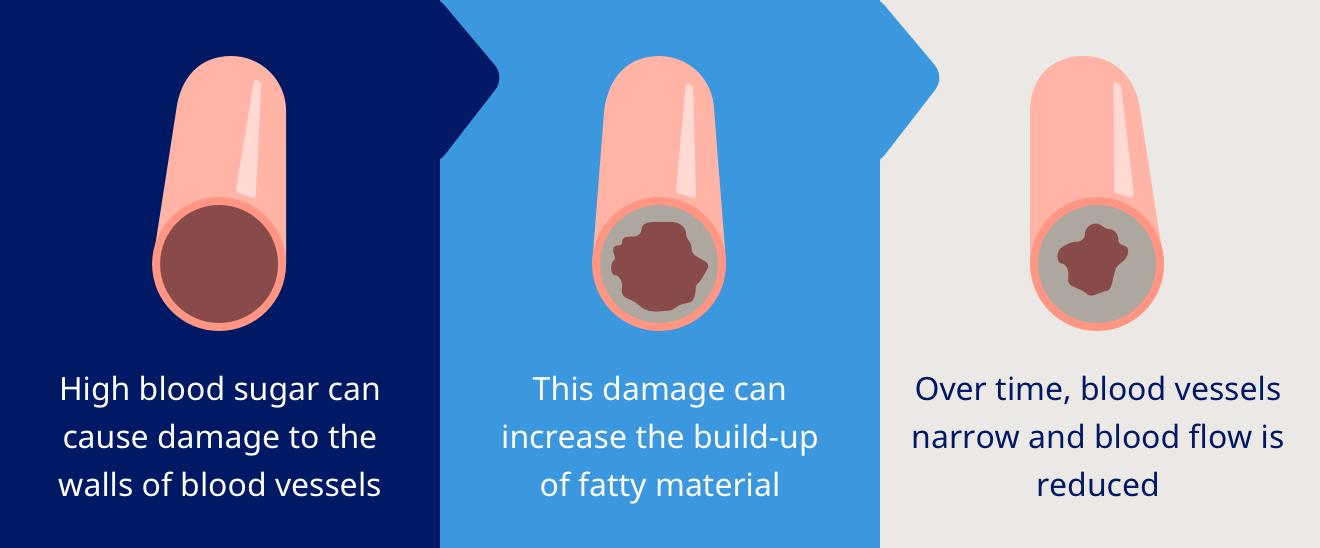
How to lower your heart disease risk
Managing your type 2 diabetes can also lower your risk of heart disease. Learn what you can do for both.
You may not be aware that if you have type 2 diabetes, you are at a higher risk of developing heart disease, or cardiovascular disease, than people without diabetes. Due to this increased risk, people with diabetes are 2–6 times more likely to die from heart disease compared to people without type 2 diabetes.
And so, it is important to take care of your heart health and type 2 diabetes together.
"I didn't find out that heart disease and diabetes were hereditary till I was 50 years old."
Heart disease is a group of diseases which can arise when blood vessels become so narrow that the amount of oxygen-rich blood reaching the body’s organs is reduced. Diabetes increases the risk of heart disease because high blood sugar levels can damage the walls of blood vessels. This damage can increase the likelihood of fatty material (such as fat and cholesterol) in the blood vessels and eventually, the build-up of fatty material can cause the vessels to become narrow. This, in turn, can lead to reduced blood flow.
When this happens, there can be a lot of force pushing the blood against the walls of the blood vessels, which is also known as high blood pressure. When your blood pressure is high, your heart and the blood vessels have to work a lot harder to move blood around the body. Over time, this causes damage to the heart and can lead to events like irregular heartbeat, heart attack or stroke.

If your type 2 diabetes is well controlled, then your risk for developing heart disease is reduced. Type 2 diabetes is a lifelong disease. Taking care of both your diabetes and heart health in the long-term involves eating a healthy diet, exercising regularly and monitoring your blood sugar levels.
You can read more about how you can prevent damage to your blood
vessels and lower your heart disease risk here.
Download this guide to learn how to talk to your doctor about the current state of your type 2 diabetes and assess your risk of developing heart disease.
